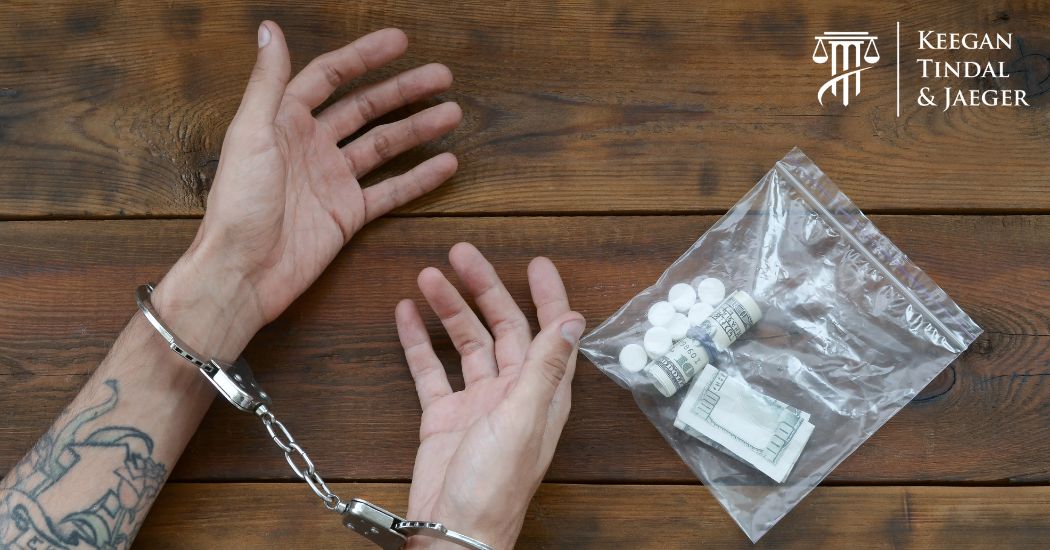Facing a drug possession charge in Iowa can be stressful. To help you prepare and make informed decisions about your case, you must understand the legal process and know what happens during a drug possession hearing. This blog provides a concise overview of what to expect at a drug possession hearing in Iowa courts, including key steps and potential outcomes.
Key Steps to a Drug Possession Hearing
Step 1: The Initial Appearance
After being charged with drug possession, the first phase of the legal process is typically the initial appearance. During this step, the court will:
- Inform you of the charges you’re facing.
- Explain your legal rights, including the right to an attorney.
- Discuss bail or bond options (if applicable).
If you cannot afford an attorney, the court may appoint a public defender to represent you. It’s always wise to seek legal representation to ensure your rights are protected throughout the process.
Step 2: Entering a Plea
At your hearing, you will be required to enter a plea. The options include:
- Guilty - Admitting to the charge, which will likely result in proceeding directly to sentencing.
- Not Guilty - Contesting the charge, which will lead to further legal proceedings.
- No Contest - Neither admitting guilt nor disputing the charge, which may also result in sentencing.
If you plead not guilty, a trial date will be set, and your attorney will begin building your defense.
Step 3: Evidence Review and Legal Motions
For those disputing the charges, the next step is a discovery period in which both sides exchange evidence. This could include police reports, lab test results, or witness statements. Depending on the case specifics, your attorney may file pretrial motions, such as:
- Motions to suppress evidence (e.g., an unlawful search or seizure).
- Motions to dismiss charges based on insufficient evidence.
These motions could greatly impact your case, potentially leading to reduced charges or a dismissal. Having an experienced attorney familiar with Iowa drug laws is critical here.
Step 4: Negotiating a Resolution or Proceeding to Trial
While some cases are resolved during pretrial negotiations (e.g., pleas or reduced charges), others proceed to a trial. Your attorney may negotiate with the prosecutor to try for:
- Reduced Charges: Convincing the court or prosecutor to reduce a felony charge to a misdemeanor can significantly lessen penalties.
- Probation Options: Instead of jail, you may qualify for probation, allowing you to attend rehabilitation programs or counseling.
If no agreement is reached, the case will move to a bench or jury trial, where evidence and witness testimony are presented to determine guilt or innocence.
Step 5: Sentencing
If found guilty or if you plead guilty, the judge will issue a sentence based on Iowa’s drug laws, criminal history, and mitigating factors (e.g., cooperation with law enforcement or participating in treatment programs). Potential penalties could include:
- Jail or prison time.
- Significant fines.
- Community service.
- Mandatory rehabilitation or educational programs.
- Driver’s license suspension (in some cases).
Your attorney may advocate for alternative sentencing options, such as diversion programs for first-time offenders.
Potential Penalties for Drug Possession in Iowa
While your case moves forward, it’s important to understand the penalties you could face if convicted. Drug possession in Iowa is classified as either a misdemeanor or felony based on the amount and type of drug involved.
Small Amounts and First Offenses
- Marijuana (under 50 grams): Simple misdemeanor punishable by up to six months in jail and a fine of $625.
- Other Drugs (e.g., methamphetamine, cocaine): Serious misdemeanors or aggravated charges may apply depending on the schedule of the substance.
Repeat Offenses or Larger Quantities
- Repeat offenses, larger amounts of drugs, or intent to distribute often lead to felony charges, bringing longer jail sentences, larger fines, and harsher consequences, including mandatory substance abuse treatment or probation.
It’s important to note that Iowa law does not take drug possession charges lightly, and the consequences can be life-altering, especially for felony convictions.
Get Support From an Iowa City & Davenport Drug Crimes Attorney
A drug possession hearing in Iowa can be an intimidating experience, but preparation makes all the difference. Whether it’s navigating Iowa’s legal procedures, challenging evidence, or negotiating favorable outcomes, having an experienced attorney by your side is critical for protecting your best interests and minimizing the impact of the charges.
At Keegan, Tindal & Jaeger, we handle Iowa drug defense cases and have successfully represented clients facing various drug-related charges and offenses. This includes drug Drug Paraphernalia, Drug Trafficking, Felony, Illegal Search Seizure, and Marijuana Possession. We're ready to fight for your rights.
If you or a loved one have been charged with drug possession, don't face the legal process alone. Contact us today at (319) 499-5524 for a consultation and start building your defense.




